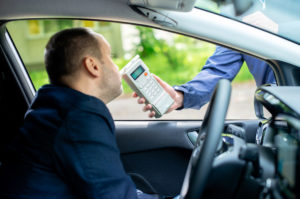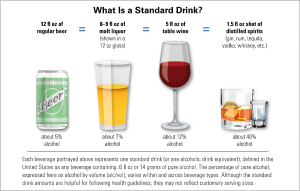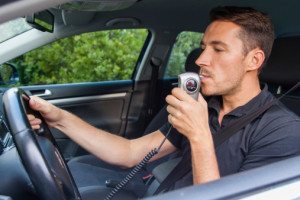 Regular readers of the Edward M. Janzekovich law blog are likely aware that breathalyzer results are routinely called into question. There have been numerous high-profile instances in the past few years demonstrating that the results of alcohol breath tests can be unreliable. In fact, courts across the nation have regularly thrown out evidence used by police officers and prosecutors that would have otherwise resulted in DUI and DWI convictions. For that reason, we like to highlight these examples when they arise to educate our readers about the importance of getting a good lawyer to analyze the evidence against you.
Regular readers of the Edward M. Janzekovich law blog are likely aware that breathalyzer results are routinely called into question. There have been numerous high-profile instances in the past few years demonstrating that the results of alcohol breath tests can be unreliable. In fact, courts across the nation have regularly thrown out evidence used by police officers and prosecutors that would have otherwise resulted in DUI and DWI convictions. For that reason, we like to highlight these examples when they arise to educate our readers about the importance of getting a good lawyer to analyze the evidence against you.
In New Jersey, the law offices of Edward M. Janzekovich have helped numerous clients overturn convictions, particularly in the past year following the case of State v. Eileen Cassidy, in which the Supreme Court issued a ruling deciding that the breathalyzer evidence used in 20,667 drunk driving cases in Middlesex, Monmouth, Ocean, Somerset, and Union counties were untrustworthy. The Court determined that the evidence used to support those convictions must be thrown out. With it, convicted defendants earned the right to challenge past convictions.
Similar episodes have been mirrored across the country. The most recent example occurred in Massachusetts earlier this month.
More than 400 Alcohol Breathalyzer Test Results Thrown Out by Massachusetts Court
Massachusetts Judge Robert Brennan recently issued a ruling in a series of consolidated cases that shined a spotlight on the Massachusetts Office of Alcohol Testing. The decision called into question the breathalyzer evidence used in over 400 DUI/DWI cases. The Massachusetts Court held that the members of the Office had knowledge that breathalyzers used in numerous cases were inaccurate but failed to release this information to DUI defense attorneys.
When this concealment was discovered, the head of the Office was actually fired, the results of the tests were excluded or thrown out of those case, and prosecutors were forced to either abandon those cases or attempt to prove that the defendants were driving while intoxicated without relying on any breathalyzer evidence.
This was also not the first time that Judge Brennan had issued rulings challenging the reliability of breathalyzer evidence. He issued a similar ruling last September that affected tens of thousands of DUI cases.
Why an Experienced DUI Attorney is Needed if Your Have Been Charged with DUI or DWI Based on Breathalyzer Evidence
Although these recent rulings did not take place in New Jersey, the situation still demonstrates why hiring a good lawyer is so important any time you or someone you know is arrested, charged, or convicted of drunk driving. Many people believe that if they fail a breathalyzer test, that is the end of the line and they will be found guilty.
This is simply not true.
Defendants in a DUI or DWI trial are entitled to present a defense and question the evidence being used against them. These cases show that, sometimes, the evidence is unreliable or even knowingly inaccurate.
Specifically, breathalyzer machines must be properly calibrated and administered according to strict guidelines in New Jersey, in order to maintain their accuracy. If the machine is not calibrated properly or the test is not given correctly, the test results could show a false positive, which could lead to an unfair conviction resulting in significant fines, penalties, loss of driving privileges, and potential jail time.
An experienced lawyer can check and challenge breathalyzer evidence by requesting the proper discovery, going through the records to determine adherence to the rules, and possibly even submit the reports and testimony of expert witnesses who can demonstrate in court that the evidence is unreliable. A good lawyer will know where to look and what questions to ask. If the breathalyzer evidence is excluded in a case, many times the case will be dismissed completely
NJ DUI Lawyer Edward M. Janzekovich Knows Where to Look and What Questions to Ask
If you or someone you know has been arrested, charged, or convicted of drunk driving, it is extremely important to contact an experienced DUI/DWI attorney. A great attorney will be able to review your case and determine whether or not you have been falsely charged. Having a knowledgeable lawyer can make all the difference. To speak with an experienced New Jersey DWI/DUI lawyer about your situation, call us at 732-257-1137 or contact us online today. We serve clients throughout the state of New Jersey.



 You may have heard the old adage that “A drink is a drink is a drink.” The saying means that one beer is equal in strength to one glass of wine is equal to one mixed drink or one shot. Once upon a time, this saying probably held a little more truth. Unfortunately, these days with the extreme variation in alcoholic beverages available (from craft beers to session ales to craft distillers and cask strength whisky), one drink can mean many things to different people – and the alcohol content of one drink can vary wildly. Of course, that means that the way each person is affected by different drinks can vary wildly, too.
You may have heard the old adage that “A drink is a drink is a drink.” The saying means that one beer is equal in strength to one glass of wine is equal to one mixed drink or one shot. Once upon a time, this saying probably held a little more truth. Unfortunately, these days with the extreme variation in alcoholic beverages available (from craft beers to session ales to craft distillers and cask strength whisky), one drink can mean many things to different people – and the alcohol content of one drink can vary wildly. Of course, that means that the way each person is affected by different drinks can vary wildly, too.



